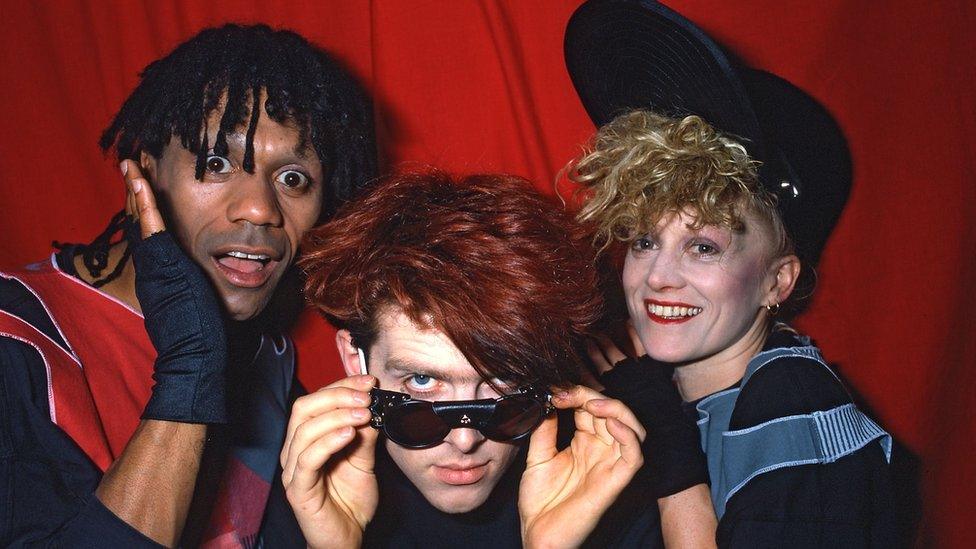The Fabs: How a '60s all-girl band (nearly) ruled the world
- Published
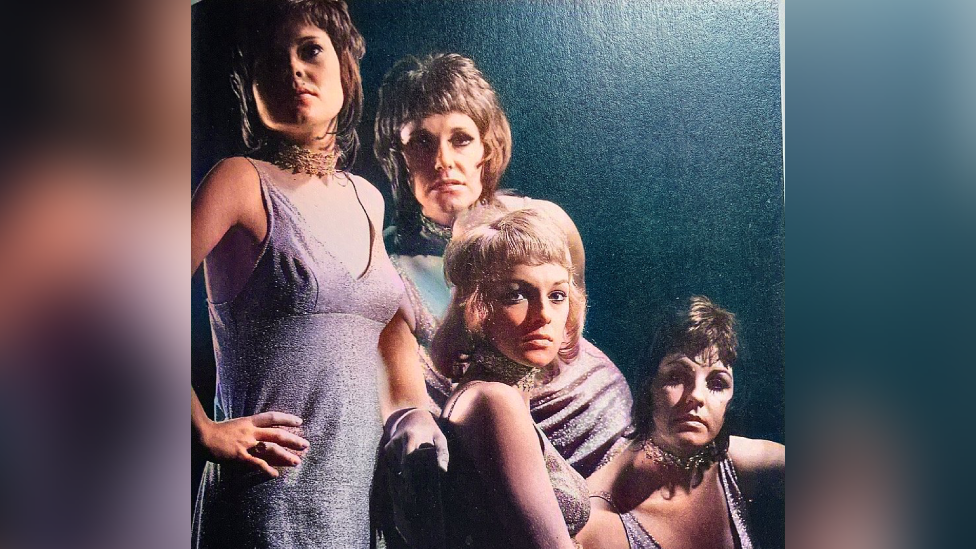
Original girl power - The Fabs started as a seaside show "novelty" but ended up playing throughout Europe, Mexico and the US
"You're fabulous, fabulous to be with."
So sang 1960s girl group The Fabs of their imagined loves.
But in truth, the fabulous ones were the performers on stage.
It was a time where not many women played guitar and drums, but band leader Wally "Waldini" Bishop wanted to change that.
He formed the quartet who would become The Fabs, whose story is being re-told in the Cardiff Music History: City of Sound, external exhibition.
One of the four was Sarah Wrigley, nee Johnston, a 19-year-old Cardiff girl whose musician father had taught her to play the guitar.
She said Wally Bishop had a show with dancers in Ilfracombe, Devon, but decided in 1963 to form a girl band in a similar vein to the Beatles.
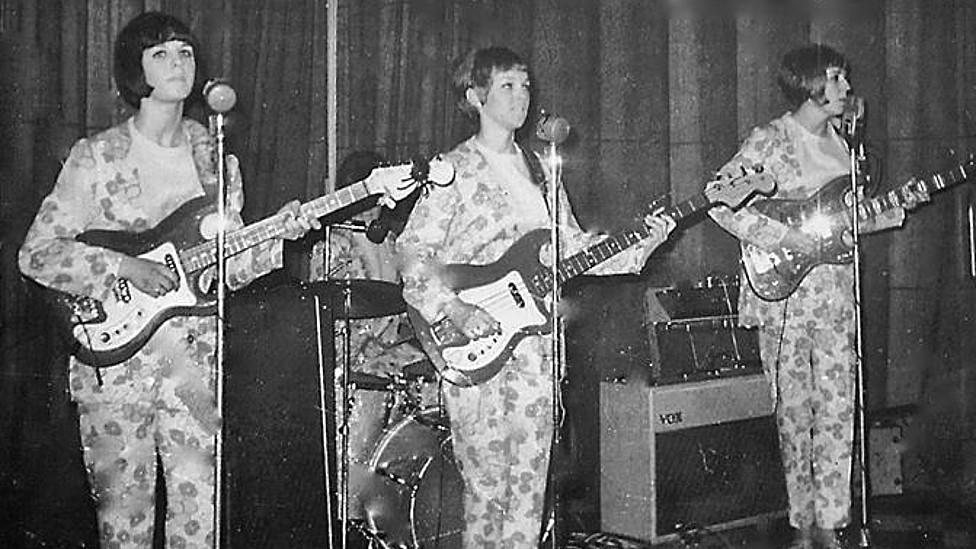
The three guitarists in the band - Maria Kitsom, Margaret Lewis and Sarah Wrigley (Johnston)
Sarah said Wally heard about her through her father and got the other girls, who did not play instruments, the gear and lessons they needed.
Sarah said the quartet - her on lead guitar, Linda Mazey from Barry on drums, Margaret Lewis from Bedwas on bass guitar, and Newport's Maria Kitsom on rhythm guitar - were a bit of a "novelty" for those watching them in the summer of 1964.
"We did three or four numbers of the day which only required three or four chords… and we were very popular with the audiences."
'They just sat mesmerised'
After the season, an offer came for a contract to perform for US bases in Germany for American GIs.
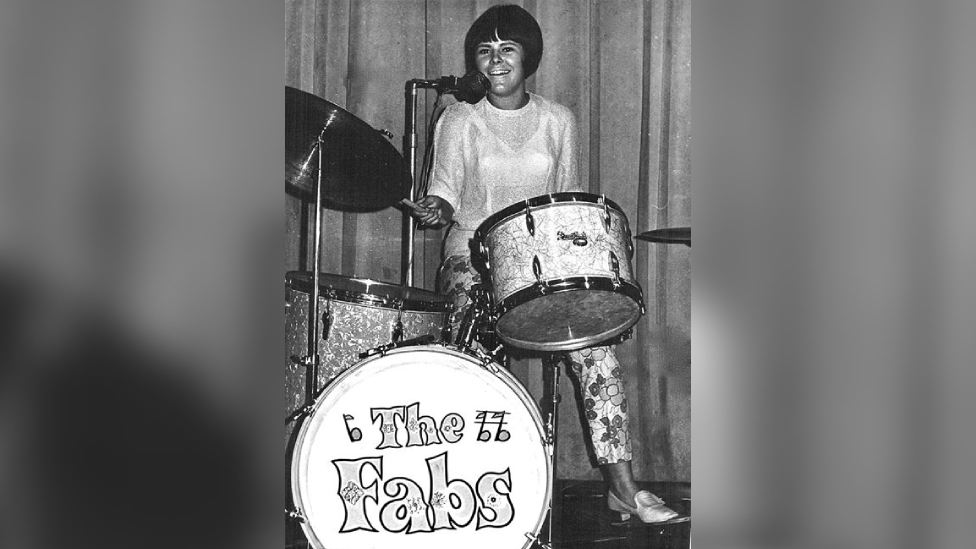
Linda Mazey on drums, when the band performed at a US base in Germany in 1965
Sarah said the band all had "good figures" and wore "all the gear all the time".
"The guys absolutely loved us," she added. "It didn't really matter what we sounded like, to be perfectly honest, however I have to say after four months of playing six nights a week four hours a night, we did rapidly improve."
This led to the group going back and forth to Germany as well as playing clubs in south Wales.
But the band faced disparaging jokes made by boy bands they performed alongside, including from a future rock star.
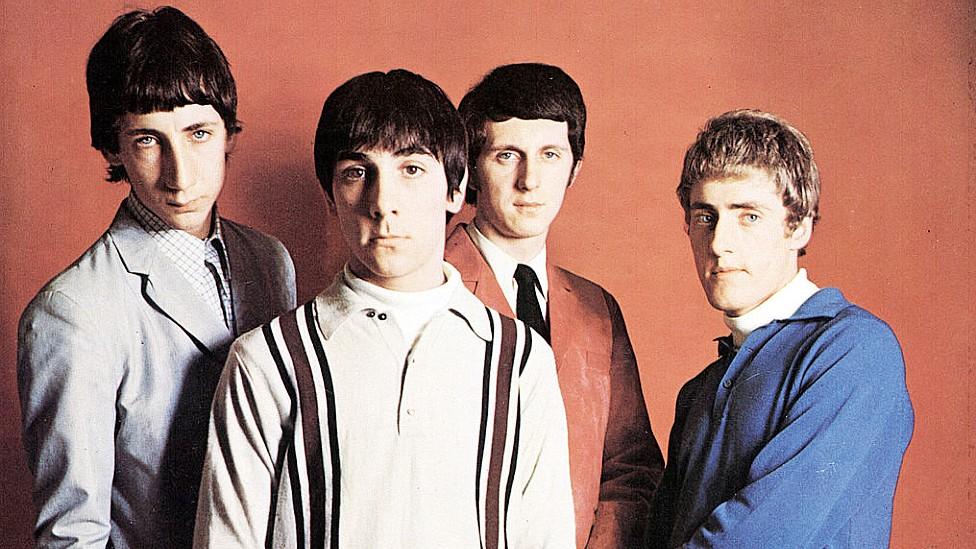
The Fabs worked with The Who, whose lead singer Roger Daltrey (r) told them "you won't get anywhere"
"We worked with The Who at one point. Roger Daltrey said to me as I came off stage from our spot, 'you're quite good, love, but you won't get anywhere' as pop groups were 'all boys'."
She said the band knew they were a "novelty", but also knew they had become good at playing and said they were not put off by Daltrey's comments.
After a year, Wally Bishop died. It did not stop The Fabs.
Sarah said: "We'd been back and forth to Germany quite a bit, and we could drive, we could look after ourselves, we kind of knew our way around. So we decided to carry on by ourselves."
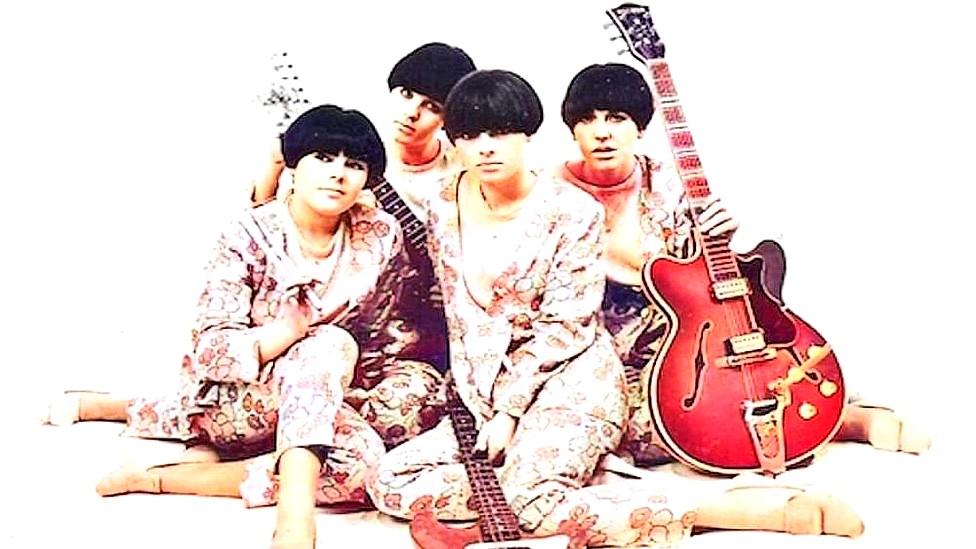
A promotional photo for the band - do those haircuts look a bit familiar...?
Sarah said the group, despite being young and female, were treated well, were well paid and "having a great time".
The group performed covers of popular songs, but Sarah did write "a few ditties", including their theme tune You're Fabulous.
"We could throw [them] into the show so weren't doing totally all covers. We didn't worry about learning new songs all the time.
"Linda used to do a drum solo which used to raise the roof and they absolutely loved her doing that."
The women also found the attitude abroad towards them quite different, facing less sexism when they travelled to Spain, the Azores and Turkey, proving popular wherever they went.
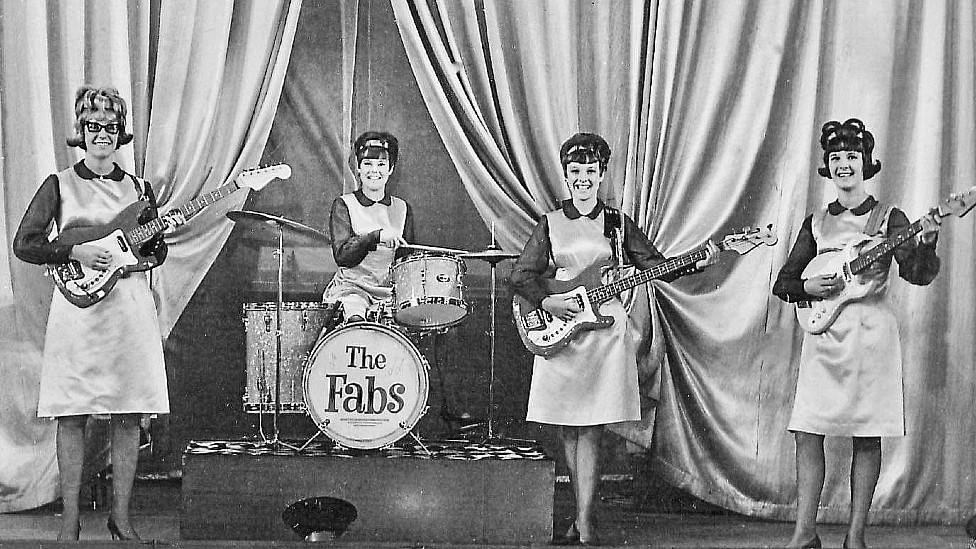
The band was the traditional four-piece of drums, bass and guitars, except played by young women rather than men
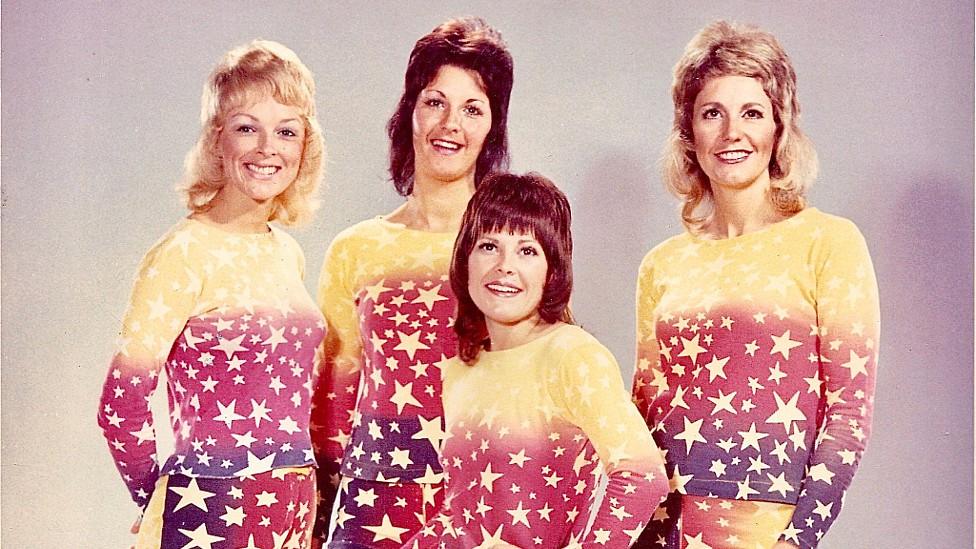
The band were very popular with their early male audiences, both on and off the stage
In 1967, the band were offered a contract for a nightclub residency in Mexico City, where the Olympic Games were to be held in 1968.
Despite being offered six months, they stayed for a year, living in an apartment and travelling to Acapulco on days off.
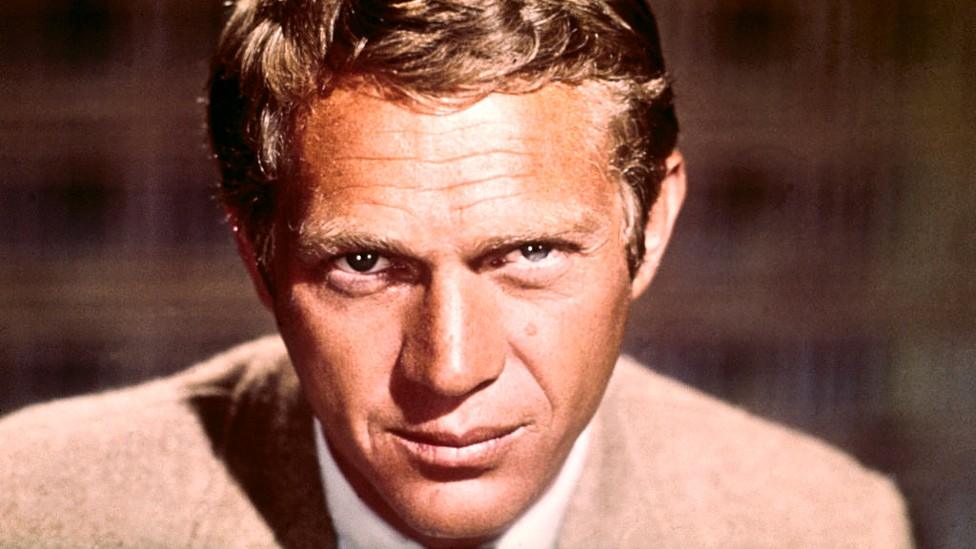
Steve McQueen pictured in 1966, a year or two before he met The Fabs
They even rubbed shoulders with Hollywood. One evening, a rumour went around that film star Steve McQueen was there.
During a break, Sarah slipped out to see if she could glimpse The Great Escape star, before feeling a tap on her shoulder.
"I turned and he said 'Hi, my name's Steve. I saw you guys playing. You're great, what are you doing here?'"
She had to get back on stage, but - although the band would not initially believe her - McQueen arranged to meet the quartet afterward.
They went to an all-night dinner together, and Sarah said, he was "so interested in us" and "wanted to know what four Welsh girls were doing here".
The band also cut a record while in Mexico to be sold in the club.
"In the UK people would spend weeks, months, longer, making an album. We did it in a day," Sarah laughed.
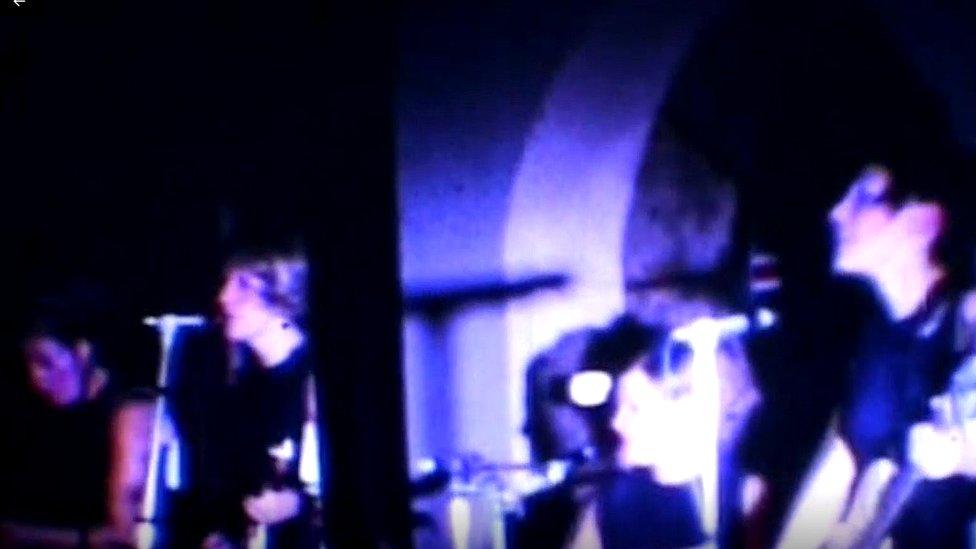
Still from archive movie camera footage of The Fabs on stage in Mexico City
They did not have work visas for the USA, but American businessmen who befriended the girls paid for them to come to San Francisco to perform in a charity concert.
"To come home and say to people we've been to San Francisco, in '68, '69 - it was a massive time for flower power, external and all the stuff that was going on there."
Encouraged by a visiting UK singer who said they should be back in the UK "being a big hit", they returned home, changed their name to The Jonson Sisters and appeared on the popular talent show Opportunity Knocks, which had 20 million viewers.
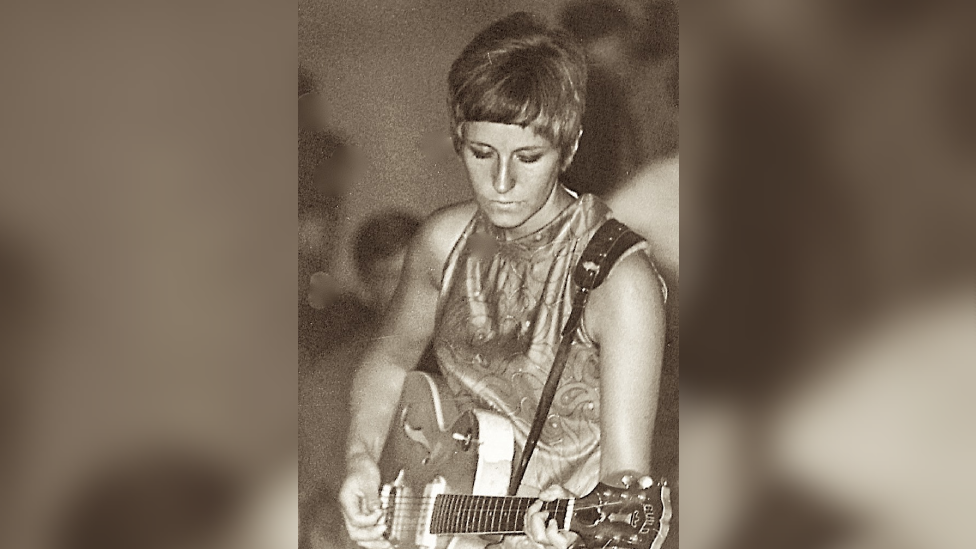
Sarah Wrigley had learned the guitar from her musician father
"We did go on and amazingly we won," said Sarah. "We started to think, maybe this is it, maybe it's going to happen. We had lots and lots of work, we went up and down the country."
They were also offered a record contract, but despite cutting tracks at Rockfield studios in Monmouth in 1971, the producer told them he still could not sell the idea of a girl band to the big record companies.
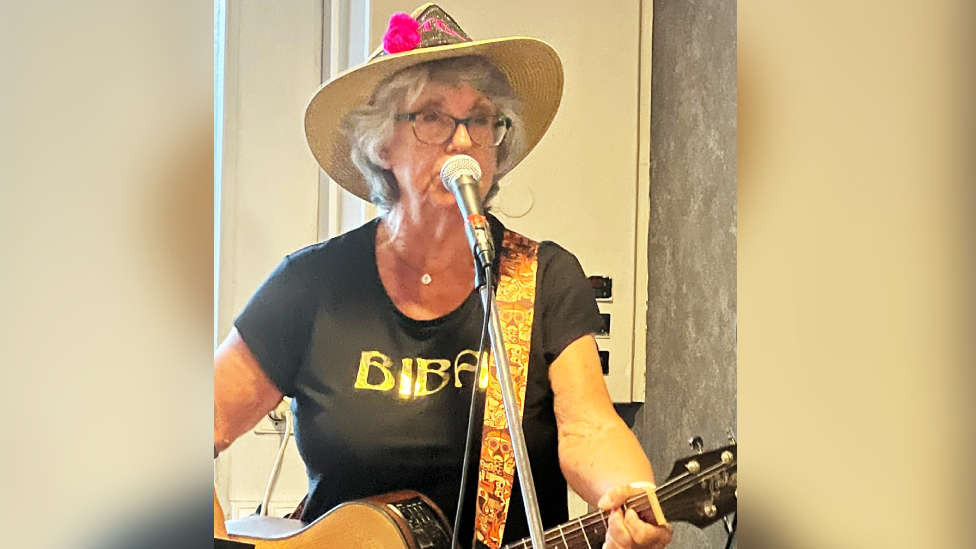
Sarah has remained involved with music all her life
After eight years together, things were also changing within the band.
"Linda was married, Maggie was engaged, I think Maria was engaged, I was seeing the guy who was our road manager. We had other people to consider where we went and what we did."
Their final appearance was at Cardiff's New Theatre panto in the winter of 1971-72.
They all remained friends, even attempting a comeback in the late 70s as Honky Tonk Women and Sarah later became a solo performer.
David Taylor, who runs Cardiff Music History, external, came across the band when doing research for his site.
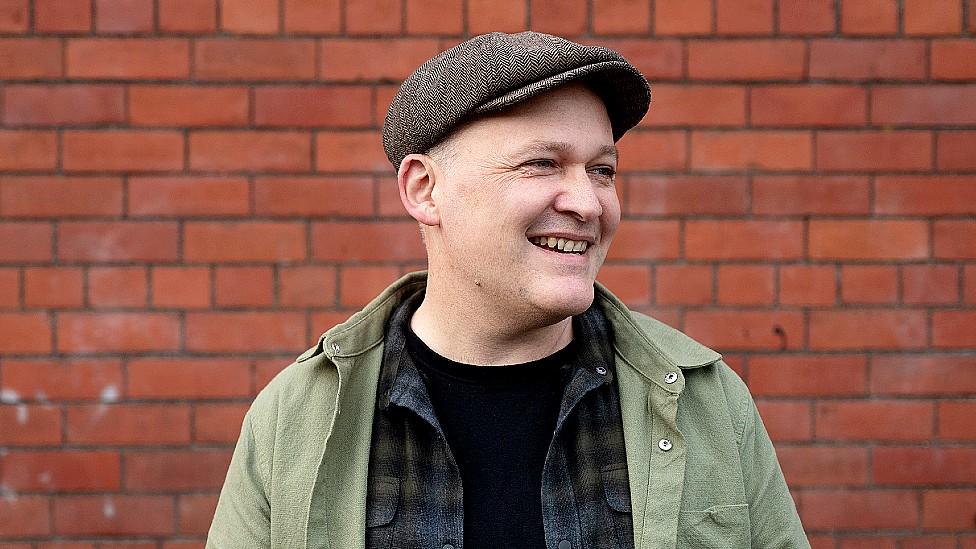
David Taylor re-discovered The Fabs when doing research for his Cardiff Music History site
He has not found any other all-women bands in Wales from that period.
"I think that's what I found interesting, that they were four girls from south Wales at a time when it was so totally dominated by men.
"And not just that they were four girls, but that the music is really good. They were a really good band."
The Fabs feature in the exhibition, external as part of Llais, external at Wales Millennium Centre, while Sarah will speak on an all-women panel, external there on Saturday.
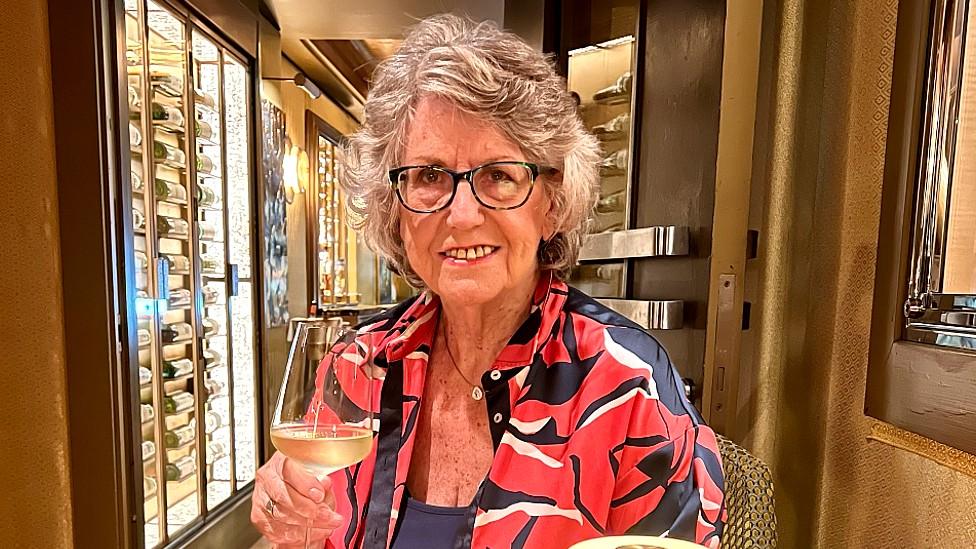
Sarah wrote a memoir of her time in The Fabs during lockdown
During lockdown, she used the enforced time at home to write her memoir, titled Twenty Pairs of Pants and a Passport.
She said: "It was the travelling that really made our lives so adventurous and exciting.
"Yes, it was great to get up on stage, we loved it, but to find ourselves in Mexico, Acapulco, San Francisco - when we look back, that travelling actually was for us an unbelievable happening."
- Published8 March 2022
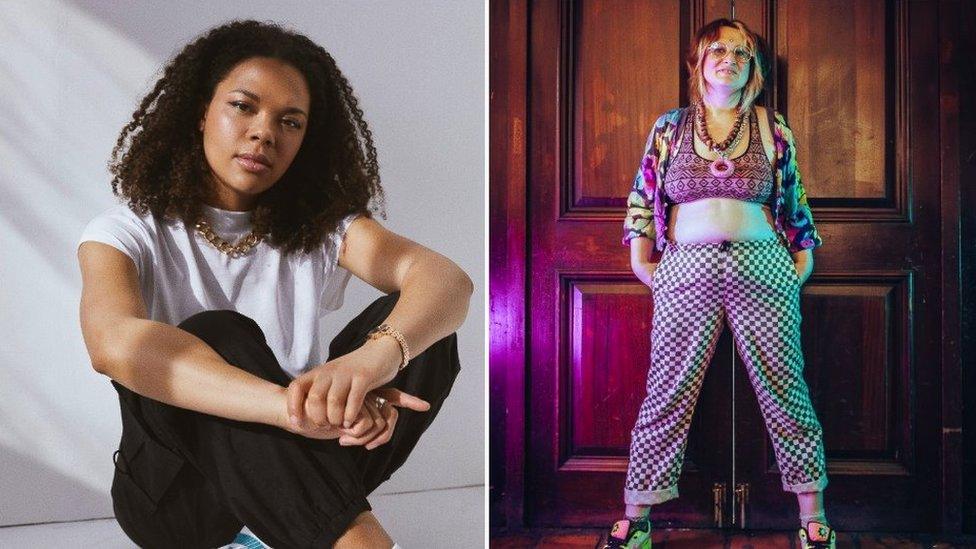
- Published15 October 2013
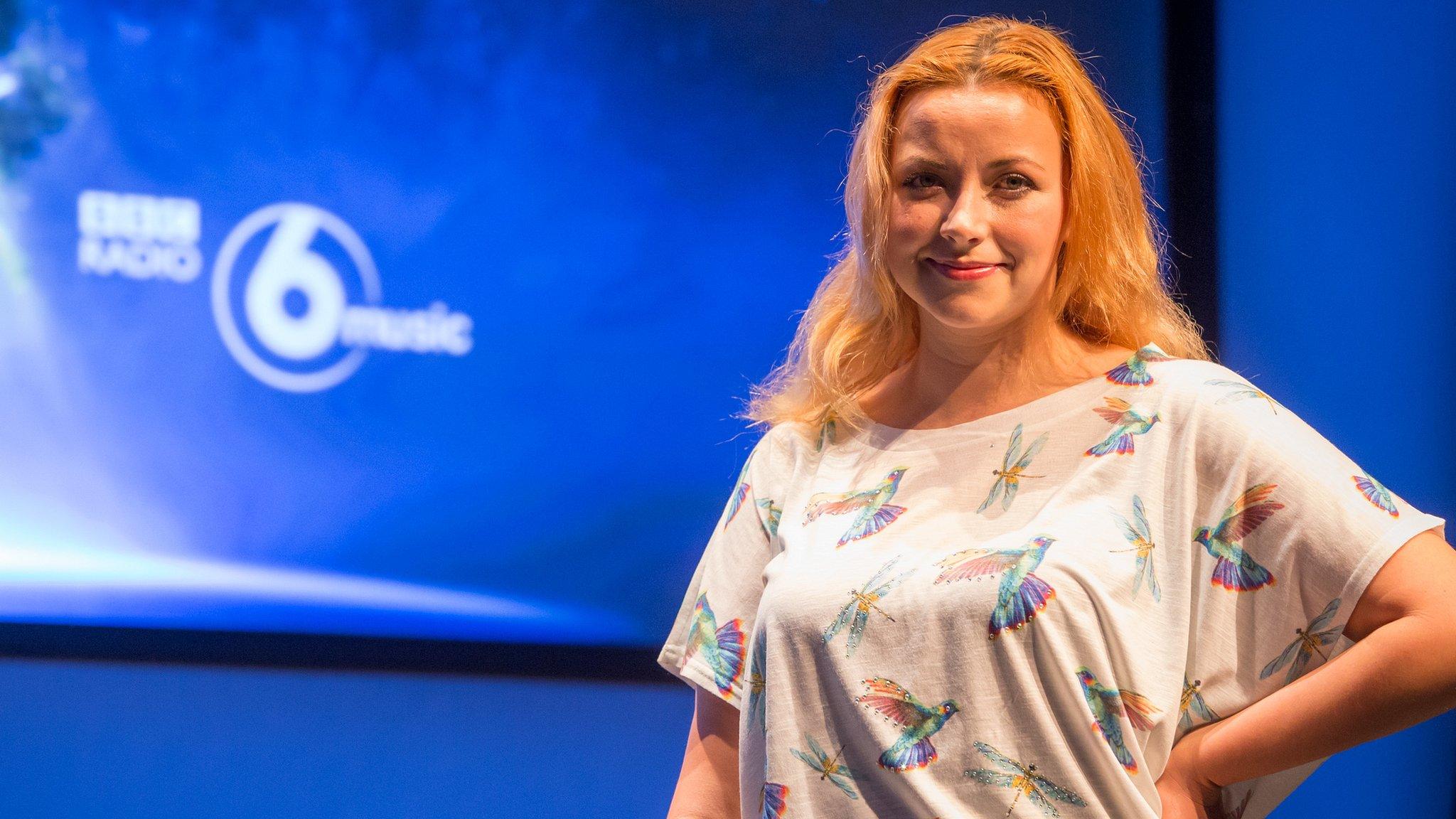
- Published14 June 2016
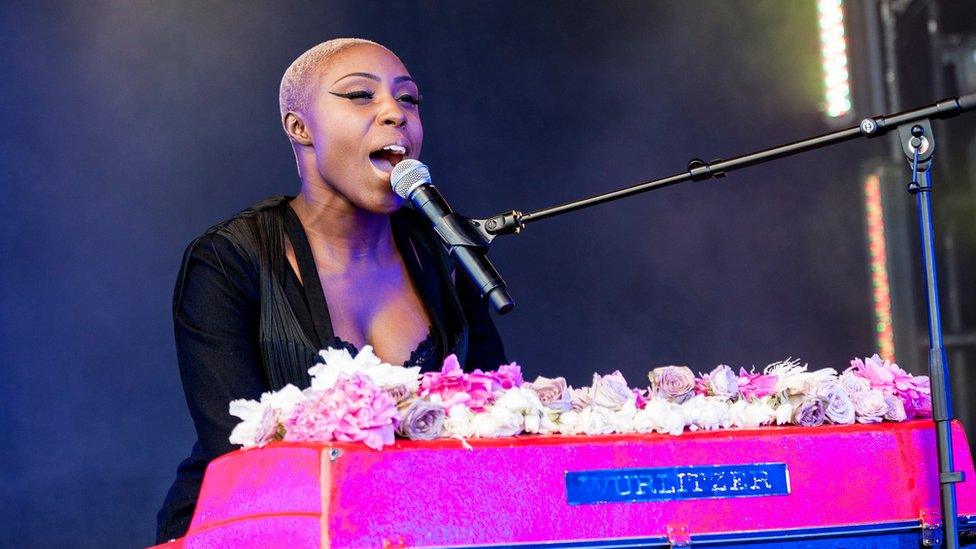
- Published21 June 2016
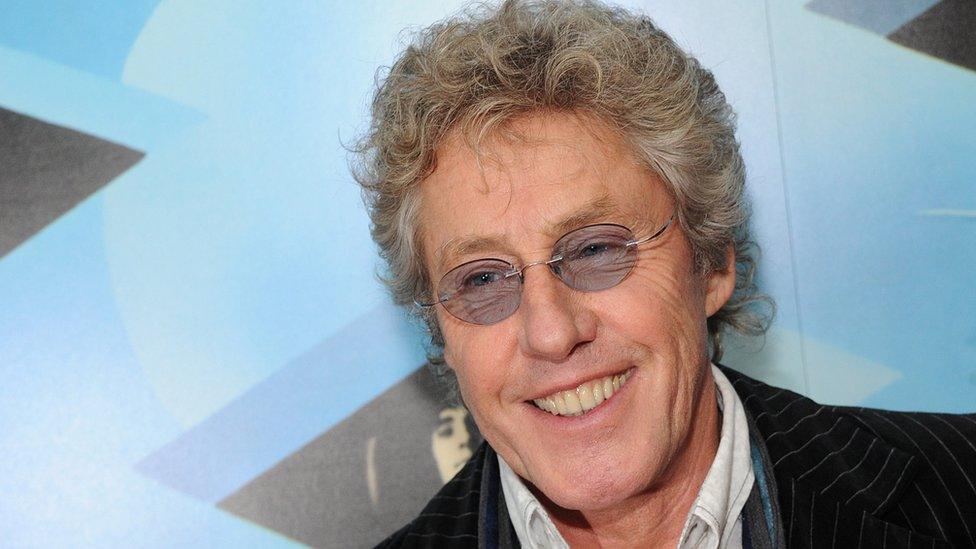
- Published28 May 2022
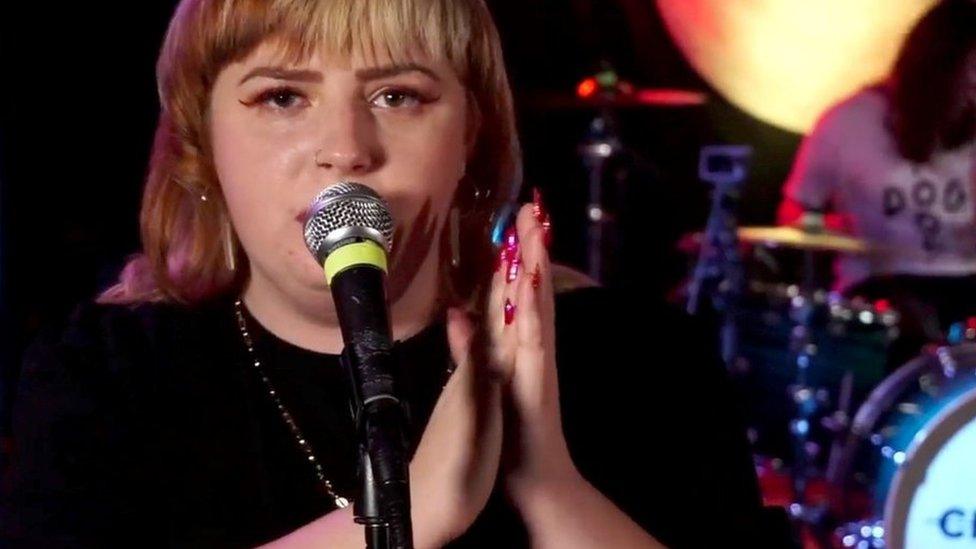
- Published26 July 2022
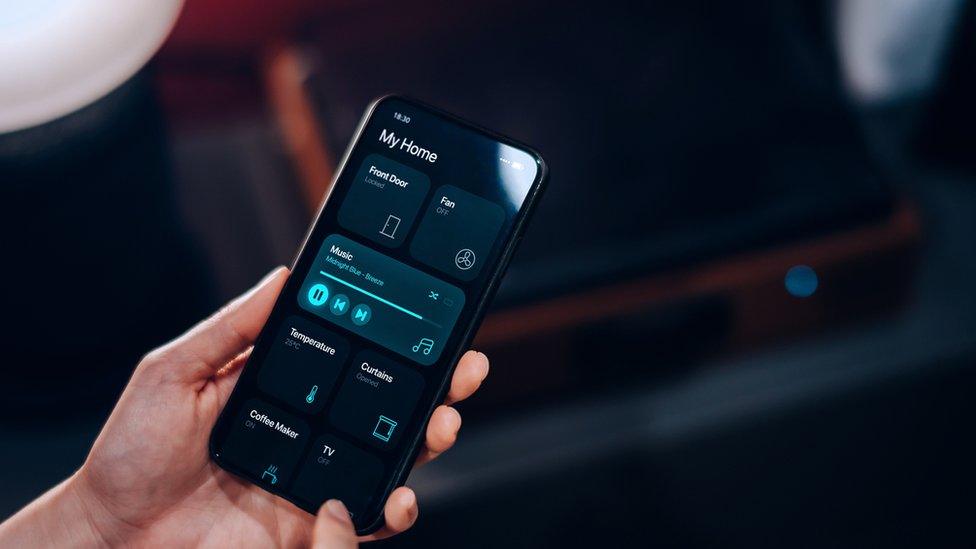
- Published18 July 2020
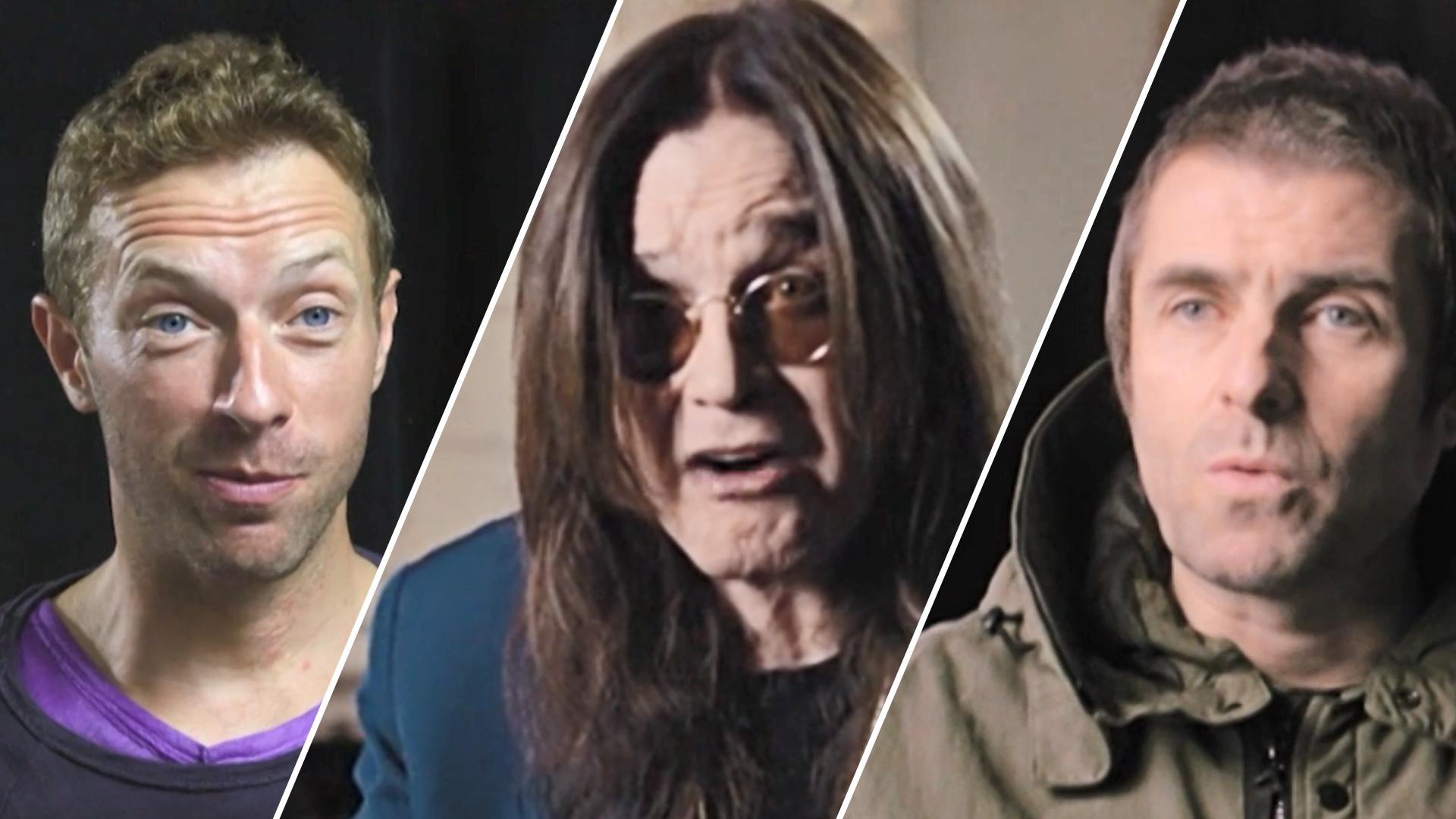
- Published24 April 2017
